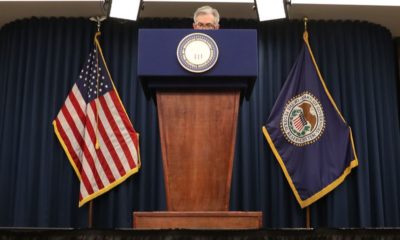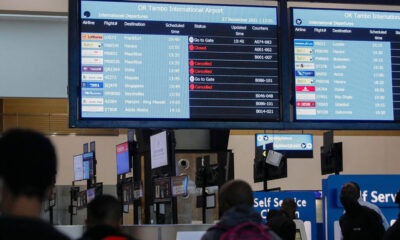- Dollar Dips Despite U.S. Tariff Fears as Brexit Hopes Lift Pound
The dollar edged down on Thursday after a bounce in European currencies but investors said concerns about U.S. President Donald Trump imposing further tariffs on Chinese imports could lift the greenback.
Trump could impose levies on $200 billion more of Chinese imports on Thursday when a public comment period on the new tariffs ends.
That would represent a significant ramping up of the trade war between the world’s two largest economies and lift the dollar which has become a principal haven for investors seeking shelter from the conflict.
The greenback on Thursday, however, edged down 0.1 percent against a basket of major currencies to 95.121.
Traders said that was because of gains made by sterling after Bloomberg reported on Wednesday that Germany would accept a less detailed agreement on Britain’s future ties with the EU to get a Brexit deal done.
Germany denied that its position on Brexit had changed though sterling still traded up 0.2 percent against the dollar at $1.2925.
“The dollar continues to face residual pressure from the buoyant pound amid the latest speculation over Brexit. How long this lift could last remains to be seen, but it is prompting buy backs of other European currencies like the euro and Swiss franc for now,” said Takuya Kanda, general manager at Gaitame.com Research.
SWEDISH CROWN PRESSURED
Elsewhere, the Swedish crown sank 0.7 percent versus the euro after the Swedish central bank kept rates unchanged and closed the door for a rate hike in October.
The Swedish currency fell last week to a nine-year low against the euro on concern about an approaching election and growing investor conviction that interest rates may not rise until well into 2019.
The crown has weakened more than any other developed-world currency this year, falling 12 percent against the dollar. The Swedish central bank is expected to be among the last to end stimulus policies dating from the 2008 financial crisis.
“The krona may struggle to rally much even with the Riksbank continuing to indicate a rate hike is coming later this year,” said Kit Juckes, global head of FX strategy at Societe Generale.
“There are buyers of the currency ahead of this weekend’s election on the grounds that the vote won’t change the underlying support of a near 4 percent current account surplus … but the global backdrop is definitely pulling the other way,” he added.
In contrast to the Riksbank and other European central banks, the United States Federal Reserve has been steadily raising borrowing costs since late 2015, lending support to the dollar.
The greenback’s more than 6 percent rise against its rivals over the past six months has hit emerging market currencies hard.
An index of emerging market currencies is trading at more than one-year lows amid fears those currencies would be hit by the global trade conflict as it negatively affects their export-oriented economies.
Argentina’s peso, which has lost more than 50 percent of its value this year, saw a rare pause in losses overnight.
Helping to restore some investor confidence, Argentine Economy Minister Nicolas Dujovne said on Tuesday he believed a deal to release early disbursements from a $50 billion standby loan agreement with the IMF could be put to its board by the end of the month.
The Argentine peso closed up more than 1 percent at 38.52 per dollar on Wednesday.
Elsewhere, the Australian dollar was flat at $0.7196.
As with the previous day, when strong gross domestic product data did not provide much of a lift, Thursday’s economic indicators were unable to prop up the Aussie.

 Education4 weeks ago
Education4 weeks ago
 News3 weeks ago
News3 weeks ago
 Business3 weeks ago
Business3 weeks ago
 Technology3 weeks ago
Technology3 weeks ago
 Investment4 weeks ago
Investment4 weeks ago
 Investment3 weeks ago
Investment3 weeks ago
 Telecommunications4 weeks ago
Telecommunications4 weeks ago
 Banking Sector3 weeks ago
Banking Sector3 weeks ago































